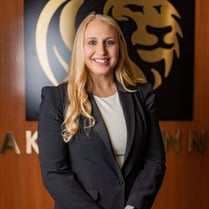
Going through a divorce is often one of the most stressful times of a person’s life. Oftentimes, it is a time of emotion, expense, and uncertainty. This stress can be multiplied for business owners and/or spouses of business owners going through a divorce. While bank accounts can be divided and other assets can be split, businesses pose unique challenges in divorces, and the quality and experience of your lawyer is critical to ensuring that your rights as a business owner or spouse of a business owner are protected. In our firm’s nearly 60-year history, we have represented business owners and/or spouses of business owners in a variety of different industries including:
- Medical and dental practices
- Law practices
- Manufacturing companies
- Restaurants
- Real estate companies
- Construction companies
- Franchised businesses
- Insurance firms
- Other business structures which include sole proprietorships, partnerships, corporations (C Corp and S Corp), LLC (limited liability company), LLP (limited liability partnership) and the like
Explore important considerations when business owners and their spouses go through a divorce.

Is the Business Marital Property, Non-Marital Property, or a Mix of Both?
The first determination that needs to be made in the divorce of a business owner is whether the business is separate property, marital property, or a mix of both. A business can be determined to be separate property through a prenuptial agreement that may have been entered into by a married couple prior to the marriage or it may be an asset that was either acquired with separate property funds or gifted to one spouse prior to or during the marriage. Oftentimes establishing a business as separate property requires research and analysis. In some cases, a business can be deemed part separate property and part marital property when the value of a business that is separate property increases / appreciates in value during the marriage as a result of the marital effort of one or both of the spouses. However, a prenuptial agreement may preclude this by including a provision in the agreement that a separate property asset such as a business will remain as separate property regardless of the increase in its value during the marriage. Alternatively, a business is marital property if it was acquired during the marriage with marital funds.
What is the Value of the Business?
If the business is entirely marital property, then the next step is to determine its fair market value taking into consideration the particular ownership interest a spouse(s) has in the business, and then to determine how the value will be divided between the spouses upon divorce. If the business is a mix of both separate property and marital property, then the focus is to determine if the business increased in value during the marriage, and if so, was the increase in value due to the marital effort of either party, or due to passive forces. Whether a business is owned solely by one spouse or both, or whether a particular percentage is owned by one spouse or both, will determine the various options available in deciding how the value of the business will be divided between the spouses. For example, one spouse may buy out the other spouse’s share which is a common occurrence whereas a continued business relationship between spouses post-divorce is not as common, but not unseen. Having a knowledgeable attorney who has represented business owners in a divorce as well as an experienced expert who has valued businesses in a divorce is crucial. With the help of not only a knowledgeable and experienced divorce attorney but also a knowledgeable and experienced business valuation expert, a business owner(s) can rest assured that the legacy of his/her business will not be impacted by the ending of his/her marriage.

What Different Methods Are Used for Business Valuation?
Understanding the business valuation process is essential when it comes to making informed decisions as it pertains to a business and its division in a divorce. Determining whether a business is a mix of both separate property and marital property or if it is entirely marital property should be determined at the outset. In addition, whether a business is owned entirely by one spouse or both, or a certain percentage is owed by one spouse or both, should likewise be determined at the outset. Upon reaching such determination, a business valuation should be conducted. A business valuation is a complicated process, and it is highly recommended that the parties engage their own individual experts or agree to use only one expert [so that there is not a battle of experts with different opinions]. Depending on the circumstances if a business is a mix of separate property and marital property or entirely marital property, the expert will determine the fair market value of the business or determine the increase, if any, in value of the business during the marriage (assuming that such increase in value is through the marital effort of one spouse or both). As it relates to the fair market valuation of a business, there are typically three different methods an expert will use to value a business in this regard which consist of the following:
- The Income Approach;
- The Market Approach;
- The Cost (Asset) Approach; or
- A combination of any of the above.
Are There Unique Spousal Support Considerations for Business Owners?
Depending on which method is used in determining the fair market value of a business, the concept of “double dipping” can become an issue when also considering spousal support. “Double dipping” occurs when the same income is used by an expert to determine the value of a business and is also used for the purposes of determining the income of a business owner when computing spousal support to be paid by the business owner to a spouse. Such is another reason to ensure the retention of a skilled expert in these matters.
If only one expert is retained to determine the fair market value of the business, then whatever method used by that expert will be the basis for the equitable division. However, if each spouse retains his/her own expert to determine the fair market value of the business, which occurs particularly in highly contentious, high asset divorce cases, then there may be a battle of the experts as to its value. Under such circumstances, both experts may have to testify at trial, leaving the court to decide which expert’s valuation will be used. If such scenario occurs, it will require significant time and result in an expensive process. It is common, however, for the experts to compromise and reach an agreement as to the fair market value of the business in lieu of providing testimony before the court.
What Happens to the Business as a Marital Asset?
Once a determination is made as to the fair market value of the business, the parties may then negotiate as to its division, in lieu of having a court decide. As indicated above, one party may buy out the interest of the other party in a lump sum or through payments over time. Alternatively, the value of the business can be offset against other marital assets of comparable value where one spouse retains the business, and the other spouse retains other marital assets of comparable value. If it is determined that there is no equitable manner in which to divide the value of a business, the only option may then be to sell the business or the particular ownership interest in the business owned by one or both spouses and split the profits.

Our Lengthy Track Record of Success in Business Divorce Cases
Business interests can complicate an already difficult divorce process. As a business owner or spouse of a business owner, the quality of your legal representation can make a material difference in your divorce. An experienced team of business divorce attorneys at Plakas Mannos is here to help you navigate this process and all other aspects of a divorce. If you’re concerned about how your business assets may be divided in divorce, contact us today.
About the Authors
Marietta Pavlidis is a litigation attorney who practices in family law, divorce, dissolution, spousal support, and workers’ compensation law. Brooke Meneses is an associate attorney who is also practicing family law, divorce, dissolution, spousal support, and more.
Share This Story, Choose Your Platform!

